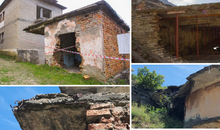
 Flash News
Flash News
Interventions in Spaç prison, Ministry of Culture reacts: We do not intend to modify history
Accident on the new Kukes bridge, three vehicles collide
Eid al-Adha is celebrated, thousands of believers pray on the "Martyrs of the Nation" Boulevard
An elderly woman in Lushnja dies after being stabbed in the neighborhood ambulance
After Tirana, KAS also decides to open the ballot boxes in Dibër
"The real reason why young Albanians like me are coming to the UK illegally"
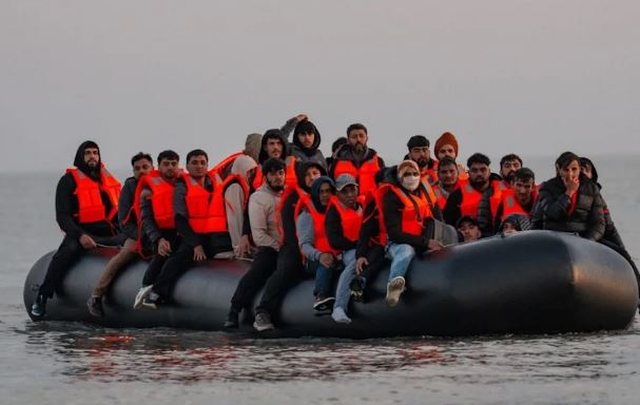
Gëzim Hilaj, a journalist, has shared his story and the reason why he left for England illegally. In an article in “Uk.finance” , he states that going to the United Kingdom had become a daily topic of conversation over coffee for young people in Kukës.
“In 2022, when around 12,500 Albanians crossed the English Channel, there were fears that Kukës would remain a ghost town.
In the same year, alarmed by these figures, the then Conservative government announced a three-year, £8.4 million project called New Perspectives for the Kukes region, aimed at creating more job opportunities for young people in order to stop illegal migration ,” he says.
But this agreement was not made, as Rama chose to remain faithful to his "marriage with Meloni."
He says Albania needs more than performance politics, but “Edi Rama just won his fourth term as Prime Minister, after campaigning on the grand promise of joining the European Union by 2028. In this context, reaching a similar deal with the United Kingdom after the failed Italian scheme would not only anger Albanians, but could also jeopardize the country’s reputation in its diplomatic stance with the EU.”
Full article
Growing up in Kukes in northern Albania, one of the poorest countries in Europe, Gëzim Hilaj saw most of the young people he knew cross to the UK in small boats. Here he argues that Keir Starmer's return centres will not stop more Albanians from doing the same.
In 2019, while I was studying hard for university in a small village in Kukes, northern Albania, I saw most of my classmates leave the country. Most migrated illegally to the United Kingdom.
Indeed, going to the United Kingdom had become a daily topic of conversation over coffee for young people in Kukes.
With its three cities, Tropoja, Hasi and Kukës, the entire region has a population of around 60,000 inhabitants and is ranked by Eurostat as the poorest country in all of Europe.
In 2022, when around 12,500 Albanians crossed the English Channel, there were fears that Kukes would remain a ghost town.
In the same year, alarmed by these figures, the then Conservative government announced a three-year, £8.4 million project called New Perspectives for the Kukes region, aimed at creating more job opportunities for young people in order to stop illegal migration.
Por që kur u largova nga qyteti im i lindjes në vitin 2022 për të studiuar dhe punuar në Londër dhe projekti ka përfunduar, asgjë nuk ka ndryshuar. Ndërsa ka pasur një ulje prej 95% të mbërritjeve të shqiptarëve me varka të vogla në Mbretërinë e Bashkuar, në Kukës njerëzit nuk janë më mirë dhe e njëjta ëndërr migrimi vazhdon. Familjet po rrisin fëmijë me shpresën se një ditë ata do të migrojnë në Mbretërinë e Bashkuar.
Ajo që supozohej të rriste punësimin mund të kategorizohet me siguri si një dështim, me 8 milionë paund nga paratë e taksapaguesve britanikë të shpenzuara kryesisht në një fushatë në mediat sociale që u thoshte njerëzve të qëndronin në vend, me pak ndikim të dukshëm.
Por për shqiptarët si unë, është gjithashtu një premtim i thyer. Ambasadori i Mbretërisë së Bashkuar në Shqipëri në atë kohë, Alastair King-Smith, i tha medias lokale se projekti do të ishte një "iniciativë ambicioze në veri të Shqipërisë" dhe do të sillte mundësi në rajon: "Mos ikni ilegalisht! Mesazhi im për prindërit dhe anëtarët e familjes është se kriminelët dhe trafikantët po shfrytëzojnë fëmijët tuaj dhe po i detyrojnë ata të futen në botën e krimit. Ju lutemi punoni me ne për të krijuar shpresë dhe mundësi për këtë rajon", tha ai.
Projekti është emblematik i mënyrës se si politika e Mbretërisë së Bashkuar shumë shpesh thotë fjalë dhe jo veprime.
Plani i dështuar i Starmer për "qendrat e kthimit"
Dhe problemi vazhdon. Muajin e kaluar, Keir Starmer u bë kryeministri i parë i Mbretërisë së Bashkuar që vizitoi ndonjëherë Shqipërinë, ku, gjatë një konference të përbashkët për shtyp, ai njoftoi plane për të ngritur qendra kthimi për azilkërkuesit e dështuar në vendin e Ballkanit Perëndimor. Duke pasur parasysh rezultatin e projektit të mëparshëm të financuar nga Mbretëria e Bashkuar, ideja e qendrave të kthimit duket e shkëputur nga realiteti ligjor dhe politik i Shqipërisë. Nëse 8 milionë paund nuk mund të ndryshonin as atmosferën në një rajon, si mund të kishin sukses qendrat e kthimit me forcë në të gjithë vendin?
Por ka një problem më të madh. Kryeministri shqiptar Edi Rama tha se Shqipëria nuk do të marrë pjesë në një skemë të tillë për shkak të "besnikërisë së saj ndaj martesës me Italinë", duke iu referuar marrëveshjes së migracionit Itali-Shqipëri të nënshkruar në nëntor 2023 - një marrëveshje e diskutueshme për të ndërtuar qendra paraburgimi në Shqipëri, ku do të përpunoheshin deri në 36,000 emigrantë jo-BE në vit.
Propozimi i Italisë ishte i thjeshtë: në vend që të mbante azilkërkuesit në tokën italiane, do t'ia jepte paraburgimin dhe përpunimin e tyre Shqipërisë. Por pothuajse menjëherë, organizatat e të drejtave të njeriut dhe ekspertët kushtetues ngritën alarmin.
In November 2024, the Italian government in Rome blocked the implementation of the Italy-Albania agreement, arguing that the scheme could only legally apply to migrants coming from “safe countries.” It is fair to say that the scheme has not gone as Italian Prime Minister Giorgia Meloni had hoped, with only 49 refugees sent to Albania so far.
Albania needs more than performance politics
Meanwhile, in Albania itself, left-wing Edi Rama just won his fourth term as Prime Minister, after campaigning on the grand promise of joining the European Union by 2028. In this context, reaching a similar deal with the United Kingdom after the failed Italian scheme would not only anger Albanians, but could also jeopardize the country's reputation in its diplomatic stance with the EU.
Unlike Italy, the UK is no longer a member of the EU and does not share the same legal frameworks or regional obligations. Any attempt to deport failed asylum seekers to Albania is likely to be challenged both in the UK’s domestic courts and by human rights watchdogs. And unlike Italy, the UK lacks the same political capital in Albania.
If Italy, a founding member of the EU with deep ties to Albania, cannot smoothly implement such a controversial migration scheme, how can the United Kingdom expect to do better? The British plan to set up return centers for rejected asylum seekers faces the same legal challenges - and perhaps even more difficult ones.
And that's without mentioning the logistical ones. Albania is already struggling to provide support for the reintegration of its returnees. What kind of infrastructure or services would UK "return centres" offer? If the Kukes project is anything to go by, we can expect very little.
If the UK really wants to stop irregular migration from Albania, it needs to abandon performative politics and invest in real partnerships. This means helping to develop long-term vocational programmes linked to UK labour shortages, legal seasonal work schemes and grants that go directly to local governments, not public relations campaigns. And above all, it means treating Albania not as a policy tool, but as an equal partner.
Because what we have seen time and again – from the £8m failure in Kukes to the failed Italy-Albania deal – is that migration cannot be solved by handing responsibility to someone else. It requires accountability, legal integrity and trust. For now, Britain has lost money in Albania and will continue to do so.
Latest news



Accident on the new Kukes bridge, three vehicles collide
2025-06-06 08:43:06
Horoscope, what do the stars have in store for you today?
2025-06-06 08:28:14
Clear weather with few clouds, the forecast for this Friday
2025-06-06 08:13:54

Morning Post/ In 2 lines: What mattered yesterday in Albania
2025-06-06 07:46:29
In trial for tender abuse, socialist MP targets ILD
2025-06-05 22:37:09
Tabaku: The left in Albania has shown with facts that it is against integration
2025-06-05 22:09:44

Uzbekistan qualifies for the World Cup for the first time
2025-06-05 21:14:35
Index: Albania among countries that consistently violate workers' rights
2025-06-05 20:53:35
Accident in Burrel, two vehicles collide, 6 injured
2025-06-05 20:31:27
Discover foods that help you relieve stress
2025-06-05 20:16:34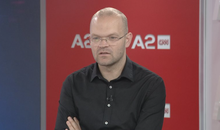
Kalaja: I have a video where votes were taken from the DP and given to the PS
2025-06-05 19:58:04
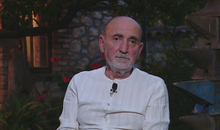

Berisha: The international community does not accept the farce
2025-06-05 18:57:18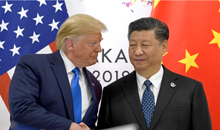
Trump after conversation with Xi: US and China will resume trade talks
2025-06-05 18:35:36
Berisha on May 11: 28 MPs were under the patronage of drug cartels
2025-06-05 18:15:44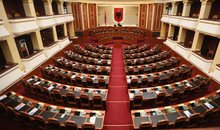
The session in the Assembly closes, the majority approves the draft laws alone
2025-06-05 17:55:21
Kurban Bajrami, kreu i Komunitetit Mysliman të Shqipërisë uron besimtarët
2025-06-05 17:29:17
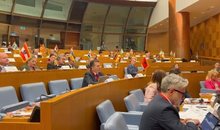
Media at OSCE conference: Organized crime has captured the Albanian state
2025-06-05 16:50:41
Car hits 75-year-old man at white lines in Vlora
2025-06-05 16:42:48

Protest in Spaç, after restoration interventions
2025-06-05 16:27:49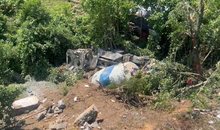
Photo/ Concrete mixer falls into abyss in Ulëz, driver rushed to hospital
2025-06-05 16:15:15
May 11/ Këlliçi: There are attempts to influence the final OSCE-ODIHR report
2025-06-05 16:06:38
Immigration is emptying schools and universities
2025-06-05 15:53:38
Plague breaks out, Kosovo bans import of sheep and goats from Shkodra and Kukësi
2025-06-05 15:48:23
After Tirana, KAS also decides to open the ballot boxes in Dibër
2025-06-05 15:31:03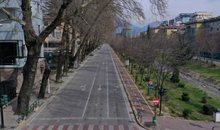
Tirana is "paralyzed" again, here are the roads that will be blocked tomorrow
2025-06-05 15:20:12
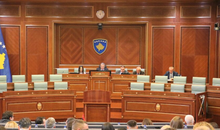


Serbia is coming to Albania tomorrow, here's where it will be accommodated
2025-06-05 14:24:43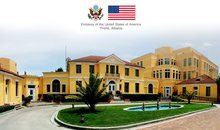
US Embassy updates visa appointment system: More flexibility for applicants
2025-06-05 14:21:01

Drug trafficking with "tentacles" in Europe, GJKKO seals prison for 9 arrested
2025-06-05 13:39:35
Deserting from the socialist ranks, Erion Braçe "becomes" a Democrat
2025-06-05 13:23:49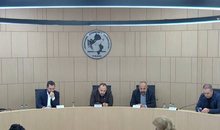
May 11 elections, KAS decides on a full recount of votes in Tirana
2025-06-05 13:22:28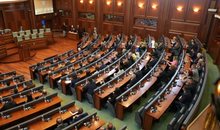

Clashes in the Parliament/ Elisa Spiropali expels Flamur Noka from the session
2025-06-05 13:04:42
A Girl, Otherwise, A Boy
2025-06-05 12:57:30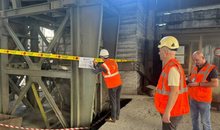
Accident at the "Albchrome" factory in Elbasan, three people arrested
2025-06-05 12:54:40


Berisha: The law of farce is that the dictator's votes are always increasing
2025-06-05 12:19:16


The murder saga, Alibej: It started after I gave Talo Çela's location
2025-06-05 11:45:27

Muslims celebrate Eid al-Adha, KMSH announces where prayers will be held
2025-06-05 11:24:50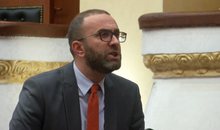
Bardhi: The EU delegation said that crime controlled the elections in Elbasan!
2025-06-05 11:16:51


Journalists were censored by Spiropali, AGSH: Fraud and institutional propaganda
2025-06-05 11:00:20
Noka-majority: The foundations of your power rest on the bought vote
2025-06-05 10:54:00
Analysis: Peace between Russia and Ukraine, further away than it seemed
2025-06-05 10:51:57

Serious in Austria/ 35-year-old Albanian dies at work
2025-06-05 10:21:00

They produced and sold cannabis, 2 brothers arrested
2025-06-05 09:50:30

Guard employee commits suicide with service weapon
2025-06-05 09:15:00
Accident in Fier/ Car collides with an agricultural vehicle, 3 people injured
2025-06-05 09:08:55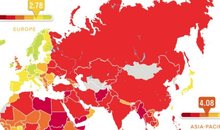
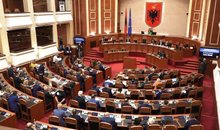

Parashikimi i motit për sot
2025-06-05 08:31:59
HOROSCOPE/ Here's what the stars have predicted for each sign
2025-06-05 08:16:17
Morning Post/ In 2 lines: What mattered yesterday in Albania
2025-06-05 07:52:36
Video/ Abin Kurti narrowly escapes, almost falling down the stairs
2025-06-04 22:54:08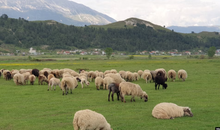
The first case of small cattle plague in the country is confirmed
2025-06-04 22:36:54

Blushi: The person who kidnapped Meta became police chief
2025-06-04 21:45:24
"Fraud" with the forgiveness of State Police fines!
2025-06-04 21:15:22



"The real reason why young Albanians like me are coming to the UK illegally"
2025-06-04 20:07:39
Government opens a legal path for investments in Army properties
2025-06-04 19:49:25
Elderly woman forgets stove on, house burns down in Vlora
2025-06-04 19:46:42

Ersekë/ Elderly man struck by lightning, dies on the spot
2025-06-04 19:12:55
Trump calls Putin, warns Ukraine that Russia will respond to attack on airbases
2025-06-04 19:05:56
Zelensky's Chief of Staff Meets with Secretary Rubio in Washington
2025-06-04 18:53:37

Rama opens a legal "path" for investments in Army properties
2025-06-04 18:41:33
How to think like a Stoic
2025-06-04 18:19:02

May 11th Elections/Balliu: The European Parliament condemned the electoral farce
2025-06-04 18:05:14

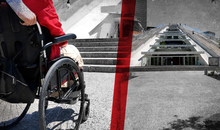
Tirana Pyramid “symbol of exclusion” for people with disabilities
2025-06-04 17:32:27



SPAK sends Evis Berberi, Belinda Balluku's right-hand man, for trial
2025-06-04 16:39:23
